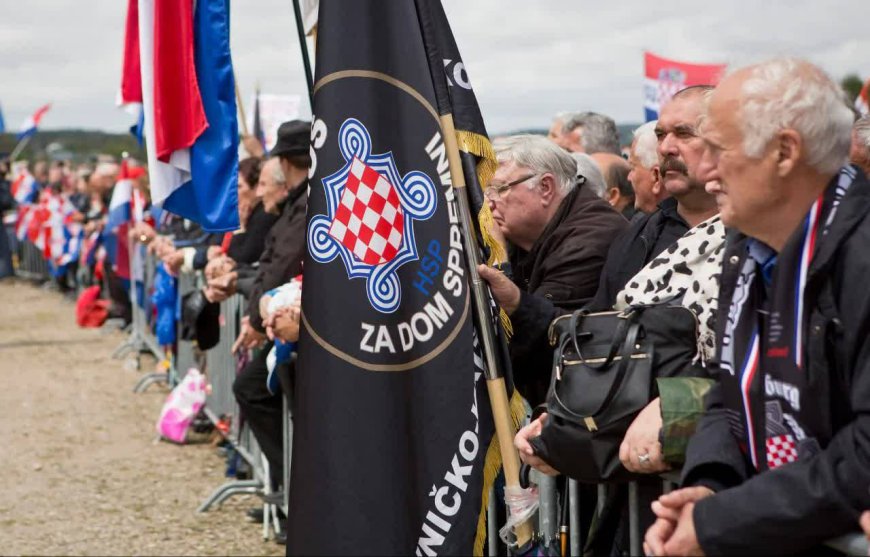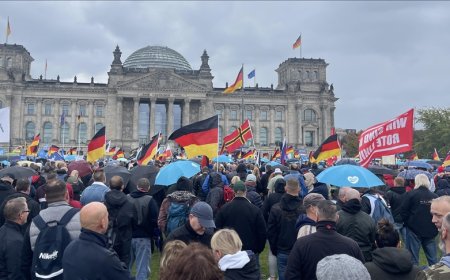Croatia's Political Landscape in Flux: A Nation Divided, a Future Uncertain, and the Rise of Populism

For over three decades, Croatian politics have been under the firm grip of the party that spearheaded the arduous struggle for independence from the disintegrating Yugoslav federation. As the nation gears up for early national elections slated for April 17, a surprising twist has emerged, with the ruling Croatian Democratic Union (HDZ) facing an unforeseen challenge from populist factions.
The HDZ, a stalwart in Balkan politics, has held the reins of power in Croatia either independently or in coalition for 26 of the 32 years since the country's secession from Yugoslavia in 1991. Recent polls indicate the HDZ maintaining a lead over its primary contender, the Social Democratic Party, as well as other minor political entities. However, the party finds itself ensnared in a web of pervasive corruption allegations, public discontent over escalating living costs, and mounting ire towards the government's autocratic tendencies, drawing pressure from both left and right flanks.
In a scenario where neither major party secures a parliamentary majority, the far-right Homeland Movement stands poised to play the role of a potential "kingmaker." The proliferation of extreme right-wing sentiments in Croatia poses the risk of exacerbating national rifts, a development that could prove financially burdensome for this NATO member state. A triumph for the far right would not only pose a challenge for Europe and NATO but also raise alarms across the continent, especially given the proximity of Croatia's parliamentary elections.
Croatia is set to elect representatives for 151 parliamentary seats. The party clinching the majority, either autonomously or through alliances, will nominate the next prime minister, a position of paramount authority in the nation. The incumbent Prime Minister, Andrej Plenković, helms the HDZ and stands as a fierce adversary to Croatian President Zoran Zoran Milanović.
Milanović upended the ruling party's calculations by precipitating early elections and declaring his candidacy as the Social Democratic Party's nominee for Prime Minister, seeking to unseat Plenković.
Amidst these political maneuvers, the Croatian Constitutional Court has ruled that the sitting president cannot concurrently participate in parliamentary elections and discharge presidential duties. Milanović, undeterred by the verdict, lambasted the HDZ for eroding judicial independence and affirmed his intent to contest in the elections.
Plenković, a seven-year incumbent, presided over a phase of economic upsurge propelled by tourism and real estate booms. European Union funding, following Croatia's accession in 2013, bolstered the nation's political landscape, though challenges persist in combating corruption allegations.
President Milanović has positioned himself as a reformist figure, vowing to combat entrenched corruption and embodying an anti-corruption ethos. He advocates for justice reform and opposes arms shipments to Ukraine, aligning with Hungarian PM Viktor Orbán in his stance against military intervention in the region.
Polls project the HDZ to secure around 31% of the vote, surpassing the Social Democrats' anticipated 22%. However, the HDZ's electoral success may fall short of its 2020 triumph, potentially paving the way for a coalition government led by the Social Democratic Party and its allies. The ascent of the far-right Patriotic Movement could further reshape the political landscape, potentially aligning with socialist factions.
Croatia finds itself at a critical juncture, where citizens must navigate between backing Ukraine and combating corruption or perpetuating the status quo. The outcomes of these elections could reverberate across Ukraine's conflict and Balkan dynamics. A victory for Croatia's president could signal a win for Russia, potentially easing NATO's pressure on the Kremlin. This paradigm shift may hasten negotiations, prompting European stakeholders to exert influence on Ukraine for peace talks.
The world watches closely as the Croatian populace wields its influence over European and NATO policies, underscoring the pivotal role this Balkan nation plays in shaping regional geopolitics.













































